- Home
- Adele Griffin
Be True to Me Page 15
Be True to Me Read online
Page 15
My sleep was so deep that nobody—not Mrs. Otis, calling to me that Rosamund was on the telephone and please pick up; not Bertie, stopping by and trudging up to my room to shake my shoulder and implore that I come out for the bay fireworks—none of it could rouse me.
I ended up missing all of the Fourth of July parties. Considering my luck with parties this summer, it was probably not such a bad thing.
The next morning, I was the only Custis at the breakfast table who was hangover-free. I made French toast. Humming a tuneless song, I whisked eggs and milk and added in the extra cinnamon with a pinch of nutmeg. Just how I liked it.
Part of my better mood, I realized, was that no awful memory from last night had washed up, like a dark, confusing tangle of seaweed, into my waking. Outside of disappointing Bertie, I didn’t have to justify anything terrible that I’d done—how I’d messed up, or that I’d confessed too much, or hurt other people’s feelings, or damaged anything that I’d now need to mend in my sloppy remorse.
“You look chipper,” Dad said tiredly, when I set his breakfast in front of him. A Custis always got points for looking chipper.
“Thanks.”
I could look chipper and then, one day, it might come true.
After breakfast, I took a deep breath and made myself call. He answered on the first ring, as if he’d been waiting.
“It’s Jean,” I said. “I feel terrible about last night, for being a party poop. I had such a headache.”
“That’s all right.” Bertie sounded so lonely and relieved that my heart spiked with tenderness. “You didn’t seem well. Though I thought maybe you were . . . sad about something.”
“No, no. Only ill.” If he knew I was lying, he wouldn’t say. I hated to hurt Bertie, and I’d done it so much this summer. “I wasn’t myself,” I said firmly. “But I’m better now.”
“I’m glad. Should I pick you up tonight, say, seven? Chip’s hosting Games Night.”
“Or maybe something more quiet,” I suggested.
“Sure, Jean. Whatever you like.”
After we’d hung up, I sat by the phone for a while. My last apology, done. For the rest of this summer, I would give nobody cause to be upset with me again. Yes, I could do that. I could change.
Lighthearted in my resolve, I biked straight to the Coop. Back when I was in Minnows, I’d spent some of my best hours here. In this morning of new awakenings, it seemed obvious that I should sign up as a volunteer. Here was something I’d wanted to do all summer, I told myself.
On our first night out, at Hollander’s, I’d pretended to Gil that I couldn’t possibly have fit more than tennis into my day. That had been a lie, and I’d stuck to it. But I was always painfully aware of how much free time I had, and how I wasted it thinking about him. Pining for him. Pursuing him.
If I had a truly busy schedule, the way a lot of kids here did, then I couldn’t waft through any more empty afternoons. I couldn’t wonder what Gil and Fritz were up to, or hope Gil might be free to see me. Besides, I liked art. Painting shells, fashioning sand landscapes and dream catchers and sponge collages, building wind chimes and birdhouses—those Coop afternoons made up a solid chunk of my happy girlhood remembrances.
A couple of generations ago, the Coop had been a real chicken coop, back when it was easier to harvest eggs on the island than to import them. I’d only ever known it as the arts building. Its paste and paper smells reminded me of less difficult years.
Best of all, nobody stopped by here.
Even when I was at tennis practice, chasing the ball around the court and getting chewed out by Coach Hutch, I’d always had an eye straying for Gil’s bike speeding along Ridge Way.
Gil would never come to the Coop. No older kids did—the only other teenager here was Donna Brisby, a Bay Shore Community College girl who ran Sunken Haven’s arts program. I’d be safe here. Safe from uncomfortable Gil sightings, and safe from yawning afternoons with Rosamund and Sara.
Donna told me straight off that she was overworked. “Monday watercolors? That’s today. That one can be all yours,” she said. “And then there’s Sunday tie-dye, which is super-popular. But basically, if you pick the projects, then you make the rules. The hardware store on Ocean Beach has art supplies. The front office will reimburse you, if you hold onto your receipts.”
“Sounds easy enough.”
“Start right now if you want. Maybe you can set up a still life? I stink at watercolors, but I’m here if you need anything.”
Then she left me.
I walked around, opening the drawers, which were still cluttered with all the same sorts of scraps in the very same places I remembered. One drawer for magazines and construction paper—now I remembered how I used to cut out mermaid paper dolls that I gave fantastical names to, like Aubureen and Odyssia. Another drawer for fabric and yarn. Another drawer for scissors, another drawer for shells and rocks and coral.
Slowly, using jars of leafy twigs and a giant starfish, I assembled a still life, and arranged it at the end of one of the long, gunmetal art tables. Next I took a box of watercolors, a brush, a cup of water, and a sheet of heavy, pressed paper. I sat down and got started on my sketch.
As girls arrived, they began pushing in, either to paint or to watch me paint. It wasn’t long before I was fielding all of their chattering questions as if I were a professional artist—advising them on how to apply watercolors to create flowers and beaches, sunsets and boats.
Eventually, the table was filled with jabbering artists, all trying their best for me. In one morning, they recharged me to a self that I’d almost forgotten. I was euphoric. They made me feel happier about art than I had felt all summer about tennis.
Maybe I knew how to break this curse, after all? Though I knew it would take more than one morning.
Because when I closed my eyes, I could still hear his voice: I really want us to be cool about this. And I could still see the two of them together. His hand on her back. The lift of her sneakers to meet his kiss. His words for her ear alone.
And I saw myself standing far outside their love, watching it as you would a curl of smoke rise from a chimney across a frozen field. Colder in my own body just for knowing that the heat existed elsewhere.
I painted my still life and I tried not to hate them.
FRITZ
I’d never thought how harsh and quick change could happen.
We woke up in each other’s arms. Sunrise had turned everything raw.
“We better get going.” When Gil stretched, the thin bedframe rattled with a threat of collapse. “I’ve got my Monday Minnows class to teach.”
“I’ve got lunch shift at the club.”
He leaned on his elbow. Staring down at me. His finger traced the outline of my face. “This beautiful morning. You in it. How does a guy get so lucky?”
But the morning sun had made us shy. We rolled up in George’s scratchy bath towels, stole down the hall, and showered together with the shade pulled, sharing a curl of soap and a washcloth.
Downstairs, we found George and Eric in the kitchen. Eric, his blond stubble and messy morning hair making him look extra cute, was reading the paper while George stood in a T-shirt and swim trunks before the stovetop, using his spatula to gather a hill of scrambled eggs into form.
“So it turns out I did know Phoenix,” I said, taking a plate George indicated to help myself.
“Oh, yeah? What’s her story?” asked Eric.
“Not so much of a story,” I said. “It’s more like she’s trying out a new identity.”
“No harm in that,” said Gil, already at the table. When I looked over at him, he gave me that smile.
You know me, his smile said. You know all my identities. And I know you right back.
I smiled. I knew. And I felt so wildly, perfectly aware of him—an arm’s length across from me, the morning sun finding the highlights in his hair, the amber glint in his eyes. I wanted to take the moment and hold it forever. Gil was the one thing I coul
d never get enough of.
“Okay,” he said, catching my eye as he crunched a last stick of bacon, then took a final gulp from his coffee mug. “We’re late. Like, really late!”
When we stood up, I could feel an ache in my throat for the end of our little getaway, as I impulsively stepped forward and gave George a hug. “Thanks,” I said quietly. “For everything.”
“You come back anytime,” he said. “Depend on me.”
And then we were rushing out the door, jumping back on our bikes. Zipping through the towns fragrant with the morning smell of beach salt and cedar.
We flew inside the Sunken Haven gate and bolted it behind us.
We raced each other around the bay, where the Minnows class had already started. When we got there, Gil braked, full-stopped, jumped off his bike and let it fall, and came over to kiss me hard and quick on the mouth. “See you later. I’ll come by.”
“Okay.” And as I wheeled out, I couldn’t resist one last glance behind me.
Amazing how we belonged to each other in a way that we never had before. Just when I thought I’d reached this summit with Gil, somehow, it all got better. So I’d never thought—in the space of that time between our good-bye, and when I saw him later that same day, and him looking like the bottom had dropped out of his life—how harsh and quick change could happen.
But that’s how it happened.
Three hours later, everything was different.
I sensed him before I looked up from where I was doing tube tubs, rolling a knife, spoon, and fork into a navy napkin, then stacking the roll-up in a large plastic tub. When the tub was full, it would be placed at the patio bussers’ stand. My fingers worked steady as a robot’s while my thoughts floated, remembering Gil’s hands twined through my hair, the press of his lips on my neck . . .
“Hi.” I blinked.
“Hey.” He was like an apparition, standing right there in the doorway of the yacht club’s pantry, where we did all our prep work. But there was no reason he should be at the club. He’d come expressly to find me. His expression made me nervous.
“What’s wrong?”
“Weeze knows. She knows I was off island all last night. She knows we were together. She’s furious.”
“So what?”
“It’s one of their things. One of their rules.”
“Since when did going out the gate become the biggest crime kids could commit? Since when did I become the worst person you could spend time with?” But my voice was thin and my words didn’t count. Being baffled and scared didn’t count, either, though I was plenty of both. “I mean, come on. Is it really that bad?”
“I’m not allowed to stay overnight off of Sunken Haven. I didn’t think they’d push me too hard. I didn’t think Junior would tell.”
My stomach lurched. Of course it was jealous Junior, making trouble. “It’s my fault,” I said stupidly, my brain reeling. “Junior’s always been riled, thinking of us together. He can’t stand it. I guess none of them can.” Which seemed so wrong. Was the Burkes’ disapproval mostly about Gil, or about me, or about the two of us? Last night, Phoenix’s words had sounded so dark, so dire. But what did Carp and Weeze really think about me under my thin coating of tolerated? Was I so awful that they were going to punish us for this?
Gil leaned back against the wall. As if he’d lost that much strength. “It was really important for me to be with you. You know that.”
“Look, I’m not scared of the Burkes.” I could hear my voice tremble to say it. “Whatever they think, we don’t have—”
“Fritz, they want us to stop seeing each other. At least while we’re here, on Sunken Haven.”
The rest of my words all flew away from me. We stared at each other. My heart had turned into some strange piece of machinery thumping too fast inside me.
“Seriously?”
“Yeah. This is real.”
“But that’s crazy. That’s so completely crazy.”
“You don’t have to tell me.” I couldn’t remember when I’d seen Gil look so unsure. But he’d never trusted the Burkes. He’d always been careful and on guard around them. He’d understood them in a way that I hadn’t.
“This day started out so perfect.” It was a silly thing to say, but it was all I could think. Was it only this morning that I’d woken up with Gil, knowing I loved him and was loved by him? “I don’t believe it’s that bad,” I decided. “We’ll fix this.” I moved out from around the table.
“I’m not so sure.”
“I am. They’re throwing a temper tantrum. People throw temper tantrums and parties all the time in Sunken Haven, that’s what it’s known for.”
Gil laughed, but the sound of his laugh was as weak as my joke, as he pulled me close. I held his face between my hands and squared him with my smile and told him not to worry, that this was only their bad first reaction, that everything would resettle.
For a moment, holding his gaze, I really did feel like I could challenge the Burkes—their biased resentments, their terms and conditions. I loved Gil the most, and it made me strong. Besides, love always won. Didn’t it?
PART THREE
JEAN
I enjoyed their sweet attention . . .
I’d have hidden at the Coop every day if I could, and I began to hold my time closely and carefully, in a way I’d never done before. Guarding myself. I showed up for tennis clinic, of course, and I was out a few times with Bertie, where we planned private excursions to Ocean Beach or found something quiet to do at his house. I went on long afternoon walks. I had dinner with my parents if they were in, and with Mrs. Otis if they were out. Most nights, I ran a bath and read in bed.
Time, calm, and peaceful activities—I knew what I needed to mold myself into a new shape that would get me past the pain of Gil. Removing myself from my friends’ gossip and idle distractions was also good for me. But I also knew that my parents saw solitude as an act of rebellion, and I figured at some point they would interfere. My mother asked several times after Rosamund and Sara, and openly fretted when I begged off attending Alice Knightley’s birthday party that next weekend, claiming my usual headache.
Sometimes, I wondered why I bothered to stay at Sunken Haven at all. For the first time that I could remember, I daydreamed of returning to the city and finding a summer job someplace where I didn’t know anyone, where I was just another girl on the subway, working for her paycheck, and being Jean Custis didn’t carry any weight or connection.
Meantime, there was the peace of the Coop, where I could be a different kind of person—authoritative, friendly, loose, helpful, stern. I’d especially relished last Saturday, because Donna Brisby wasn’t there and I had full reign.
This Saturday, I arrived early, carrying my project in an enormous plastic bag that had almost tipped me twice on the ride over.
Maisie Walt was already waiting for me on the steps.
“My friendship bracelet’s a mess,” she said, following me inside and waiting until I’d finished setting up. When I sat down with her, she leaned against me. Her hair smelled like pastry.
“All you have to do here . . . is loop under and over, and then you knot through.” I secured and fastened the end of her green-and-navy friendship bracelet, then slipped it over her wrist for both of us to admire. “A tiny repair was all it needed.”
Maisie smiled. “We can always tell which ones you do, Jean. You make the bands so flat.”
“Aw, thanks. Want to help me finish getting everything ready for the others?”
She gave me a small smile, glad to.
Together we unpacked my bag and piled the table with crochet hooks and rainbow-bright yarn that we would later crochet into piles of granny squares to make into belts and tea cozies and dog blankets. Once the others started trickling in, Maisie slipped to a seat at the end of the table, her shy presence drowned by the others.
At first, I’d been startled by the sheer energy force of these girls. Had I ever been so carefree, so confident? Th
ey were always singing and laughing, cracking silly jokes, pranking one another. Their affection for me took me by surprise, too—their bright offerings of friendship bracelets, sticks of gum, Life Savers candies, wilted bouquets of starflowers that I stuck in jelly jars and used as a table centerpiece, then threw out at the end of the day.
Nothing of much consequence was ever said or done at the Coop, but in the two weeks since I had started showing up here, I felt as if I’d reclaimed a secret, lovely room in myself, a room for a girl who hadn’t been quite ready to give up making mermaid paper dolls and painting seashells. A room where I preferred corny riddles and earnest compliments a hundred times over trying to be witty and blasé with my own friends.
Crochet squares was a brand-new project—Mrs. Otis had taught me crochet years ago—and once I’d explained it, the table became intense with the sounds of whispering and murmuring as the girls checked on their neighbors’ work. I sat at the head and told or listened to stories, all the while chaining corners and undoing their snarled, beginners’ efforts.
“Say, did any of you girls hear the story about the hurricane that blew away the yacht club, back when Sunken Haven was first getting started and the club was a private hotel?” I asked now.
“Tell us!” the girls cried.
It gave me a pang, sometimes, to tell the girls the same tales that I’d shared with Gil. But I enjoyed their sweet attention, just the way I enjoyed how they squabbled among themselves for who got to bring me scissors or paper towels. And I loved the shine in Maisie’s eyes at the end of that afternoon, when I gave her a few of my own granny squares.
But I never formed a special attachment to any one of the girls. They were all, and none of them, my favorites. Nobody got to win or lose with me.

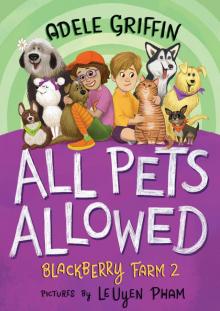 All Pets Allowed
All Pets Allowed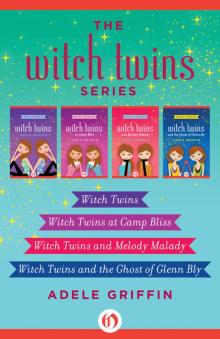 Witch Twins Series
Witch Twins Series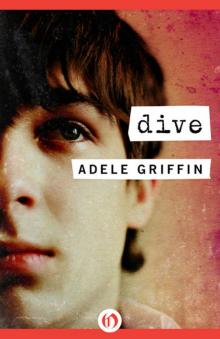 Dive
Dive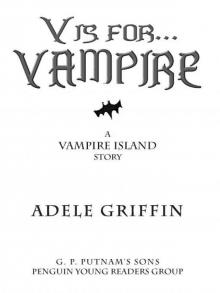 V is for...Vampire
V is for...Vampire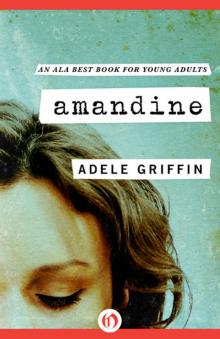 Amandine
Amandine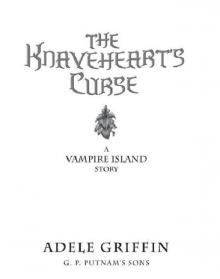 The Knaveheart's Curse
The Knaveheart's Curse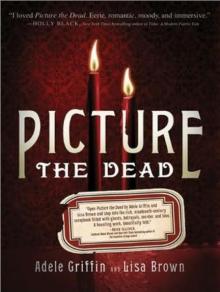 Picture the Dead
Picture the Dead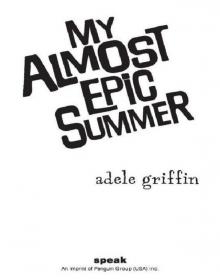 My Almost Epic Summer
My Almost Epic Summer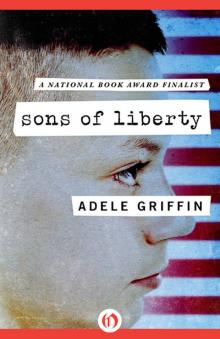 Sons of Liberty
Sons of Liberty Overnight
Overnight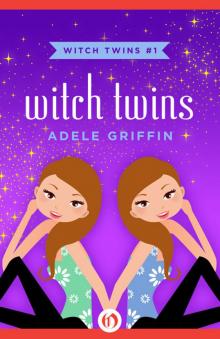 Witch Twins
Witch Twins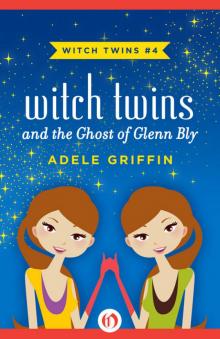 Witch Twins and the Ghost of Glenn Bly
Witch Twins and the Ghost of Glenn Bly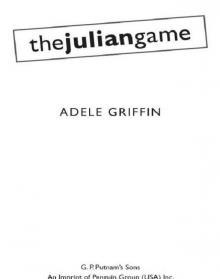 The Julian Game
The Julian Game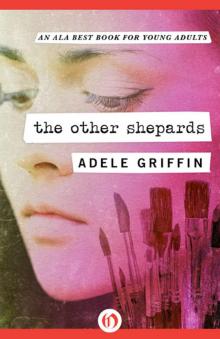 Other Shepards
Other Shepards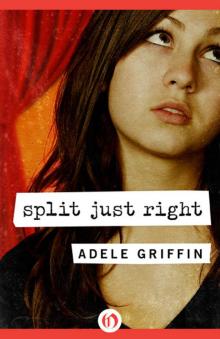 Split Just Right
Split Just Right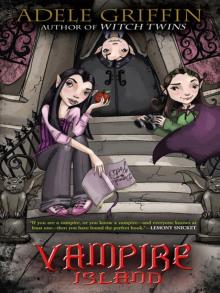 Vampire Island
Vampire Island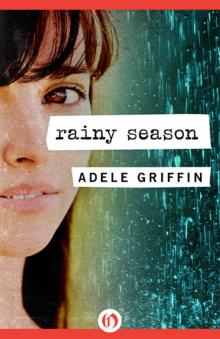 Rainy Season
Rainy Season Hannah, Divided
Hannah, Divided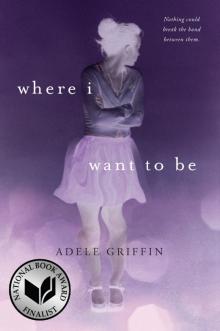 Where I Want to Be
Where I Want to Be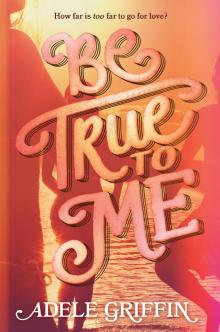 Be True to Me
Be True to Me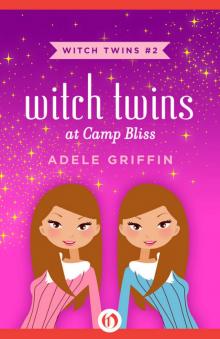 Witch Twins at Camp Bliss
Witch Twins at Camp Bliss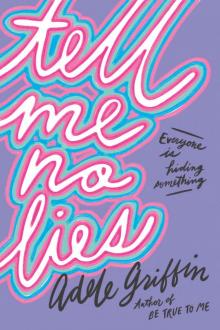 Tell Me No Lies
Tell Me No Lies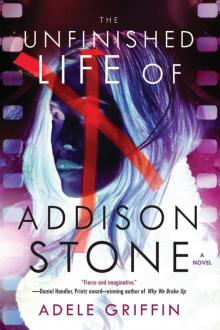 The Unfinished Life of Addison Stone
The Unfinished Life of Addison Stone